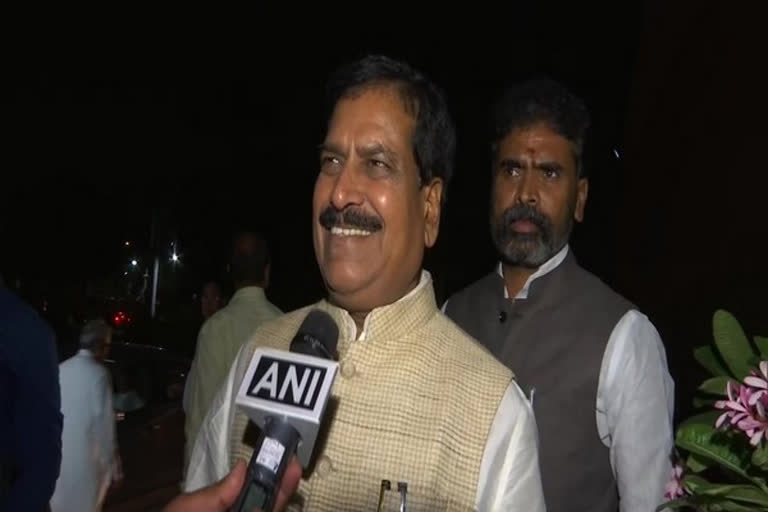New Delhi: The Centre is conducting a detailed study to assess the feasibility of setting up bullet train network in other parts of the country, Minister of State for Railways Suresh Angadi said in Rajya Sabha on Friday.
At present, the Centre has sanctioned Mumbai-Ahmedabad High-Speed Train project, also known as bullet train project, of 508 km length. It is targeted to be completed in 2023.
"A detailed study is going on throughout the country....We can examine (to set up a network) once we get the report," Angadi said during the Question Hour in the Upper House.
Once the current project is successful, the Centre can think of launching it on routes like Delhi-Kolkata, Delhi-Mumbai and other cities, he said.
In his written reply, the Minister said the Mumbai-Ahmedabad High-Speed Train Project is being implemented at an estimated cost of Rs 1,08,000 crore by a special purpose vehicle National High-Speed Rail Corporation Ltd (NHSRCL) with the financial and technical assistance from Japan government. The Minister said that about Rs 3,226.8 crore expenditure has been incurred up to June 2019 on this project.
"Bullet train or High-Speed Rail Projects are highly capital and technology-intensive, and therefore, their proposals for other sections are subject to technical feasibility, financial and economic viability and availability of funding," he added.
Responding to supplementaries, Angadi said the current high-speed project is viable as an average 36,000 people will travel and the minimum fare is expected to be Rs 3,000.
On land acquisition issues faced in Gujarat and Maharashtra for the project, the Minister said, "In Gujarat, 297 villages are coming on this line. More than 97 per cent farmers in Gujarat have given consent.
"Only in some patches of Maharashtra area, there is some problem. Those farmers will also give consent. The project will be completed as early as possible," he said and added that the land acquisition is a state subject and the states are dealing with it.
To a query on steps taken to address the impact of this project on ecology especially mangroves, the Minister said all environmental safeguards have been taken for the project.
"The entire bullet train is being made on an elevated track, which will minimise the impact on environment and ecology.
"Further in the Mumbai area, to ensure minimum impact on mangroves, the project involves a tunnel of 21 km including seven km undersea tunnel. Further, five times plantation of mangroves will be undertaken," he added.
To a suggestion that it would have been better if the government made a huge investment in education and health instead of a high-speed train, the Minister said: "Bullet train is for the future. What has been thought as luxury yesterday is a necessity now."
China had set up a high-speed train way back in 1964 when it was not as developed as India is now. China started 40 years before and now it has more than 20,000-km-long high-speed train network, he said.
In India, the younger generation is demanding such trains because the trains in neighbouring countries are running at a speed of 400 km per hour but here there are at below 100 km per hour, he added.
Also Read: K'taka rebel MLAs' plea: Rohatgi apologises for his absence in SC



